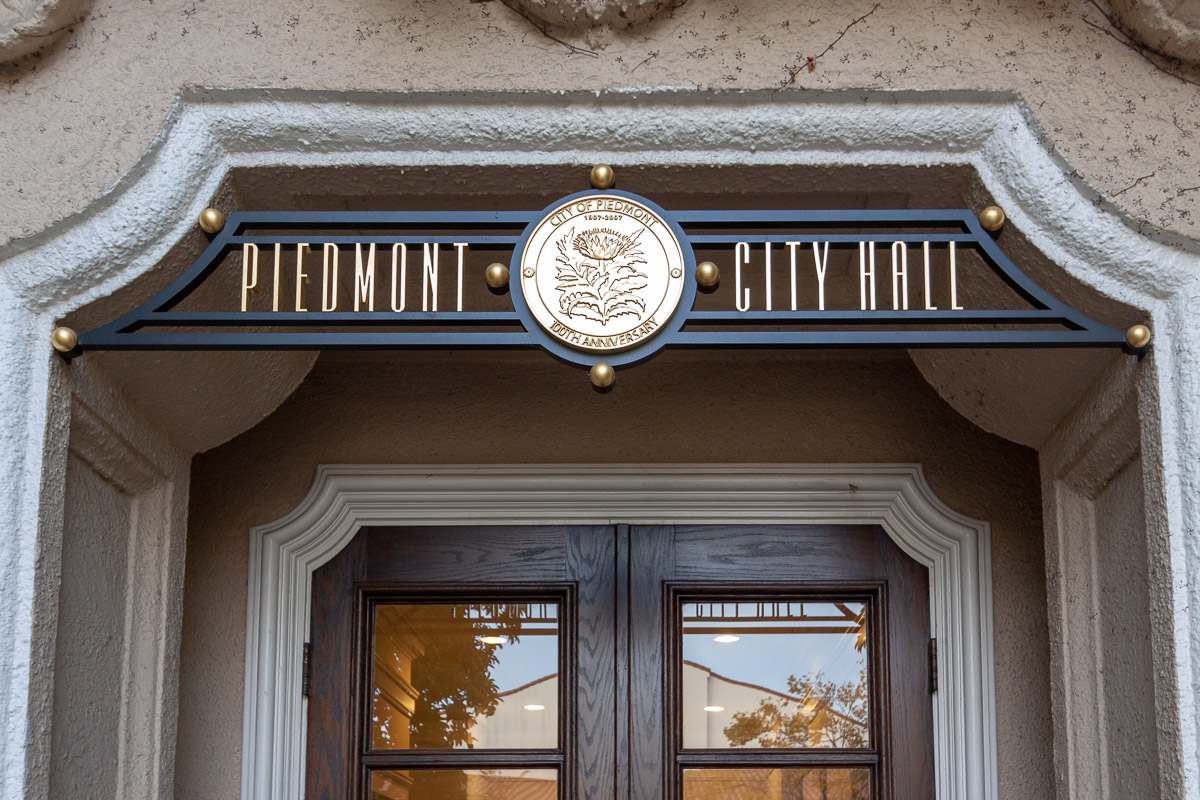Even though recent surveys show most Piedmonters support proposed city code changes calling for all-electric heating and appliances as part of new construction projects, city officials recognize there is still some confusion around a draft plan approved in July.
City staff hopes to address any lingering concerns about these proposed “reach codes” in time for the council’s second reading of those codes, tentatively planned for its Feb. 1 meeting.
On July 20, the City Council first approved the “reach codes,” a series of measures to bring energy savings and reduce natural gas use in Piedmont. They’re so named because they “reach” beyond the state minimum requirements for energy use in building design and construction, to more effectively address slowing climate change. More specifically, the codes are envisioned as helping Piedmont meet its 2030 and 2050 greenhouse gas emission-reduction targets.
The draft codes adopted in July included adopting stringent new requirements to hasten replacement of gas powered heating systems and appliances with all-electric ones in new housing construction and as part of major renovations, and to beef up building insulation.
There has not yet been a second reading for the reach codes. City Administrator Sara Lillevand told the City Council Monday night that, after their initial approval, there was initially “substantial community interest” in the reach codes and their purpose, “but also some confusion.”
The city hired FM3, an Oakland-based opinion research firm, to do a survey of Piedmont residents on their opinions about the draft reach codes. Dave Metz with FM3 shared with the City Council Tuesday night several findings of the survey, including:
–Eighty-five percent of those surveyed believe climate change is real
–Ninety-one percent believe climate change will harm future generations
–Seventy-two percent believe immediate action is needed to counter climate change
–After being shown a list of example improvements that would meet reach code requirements, 64 percent of those surveyed supported requiring these improvements to help reduce natural gas use (32 percent opposed the idea). Others, Metz said, asked whether compliance with some of the reach codes could be voluntary and not compulsory.
Support for Piedmont’s reach codes remained fairly constant, Metz said, among those who said they knew “a great deal” about them, and those who were only somewhat familiar with them.
Those surveyed said the proposed reach codes carry with them some negatives, Metz said, including that an electric power outage could leave Piedmont residents vulnerable; that the proposed codes are unfair to residents who have already taken energy efficiency improvements; added cost to homeowners; and constitute “government overreach.”
But Metz said that, taken as a whole, “There’s a pretty broad and durable majority of Piedmonters who believe this is a worthy enterprise.”
Vice Mayor Tim Rood praised what he said has been a “largely unprecedented” degree of public outreach and professional follow-up on the reach codes issue. That outreach has included an in-person town hall meeting in January 2020, and a virtual one in September, to discuss the reach codes. A recording of the September event can be viewed here (https://piedmont.granicus.com/MediaPlayer.php?view_id=3&clip_id=2219), and a Q&A about the codes can be seen here (https://piedmont.ca.gov/UserFiles/Servers/Server_13659739/File/Front%20Page%20Items/Reach%20Codes%20FAQ%202020-09-28.pdf).
Margaret Ovenden of Piedmont told the City Council she is encouraged by the ever-increasing awareness by Piedmonters of the need to act on climate change, and of the reach codes. “We know the majority sees (climate change) as a serious problem, and we should move ahead with this,” she said.
When Councilwoman Conna McCarthy asked Metz whether his firm’s survey determined whether respondents planned to make some of the recommended upgrades themselves, Metz said the survey results were more “a reflection of general principle” than of specific respondents’ plans.
Councilwoman Jen Cavanaugh said she hopes Piedmonters continue to take the need for change to heart. “The city can’t regulate itself out of this alone,” she said.
Contact Sam Richards at sam.richards4344@gmail.com

The city’s carbon inventory in the CAP shows that approximately 45% and 48% of GHG emissions come from the residential and transportation sectors, respectively. Not sure how that jives with Michael’s statewide estimate of 7% for residential NG. Piedmont is almost all residential so perhaps our Residential NG use is well above the state average. But the city should address electrification of transportation.
While I don’t strongly oppose most of the specifics in the proposals, particularly those dealing with insulation, there is only a miniscule GHG advantage from electrification. The majority of California’s electricity does not come solar and wind. Natural gas is the largest source of power generation. The entire residential sector only emits 7% of the state’s GHGs. We should be going after the international combustion engine instead. Transportation emits 7 times more GHGs than the residential sector. Somehow, local cities have been sold a line that electrification of appliances is important. It isn’t.
Furthermore, if every city enacted such requirements, there wouldn’t be enough generating capacity to meet the demand. Last summer’s power shutoffs showed that.